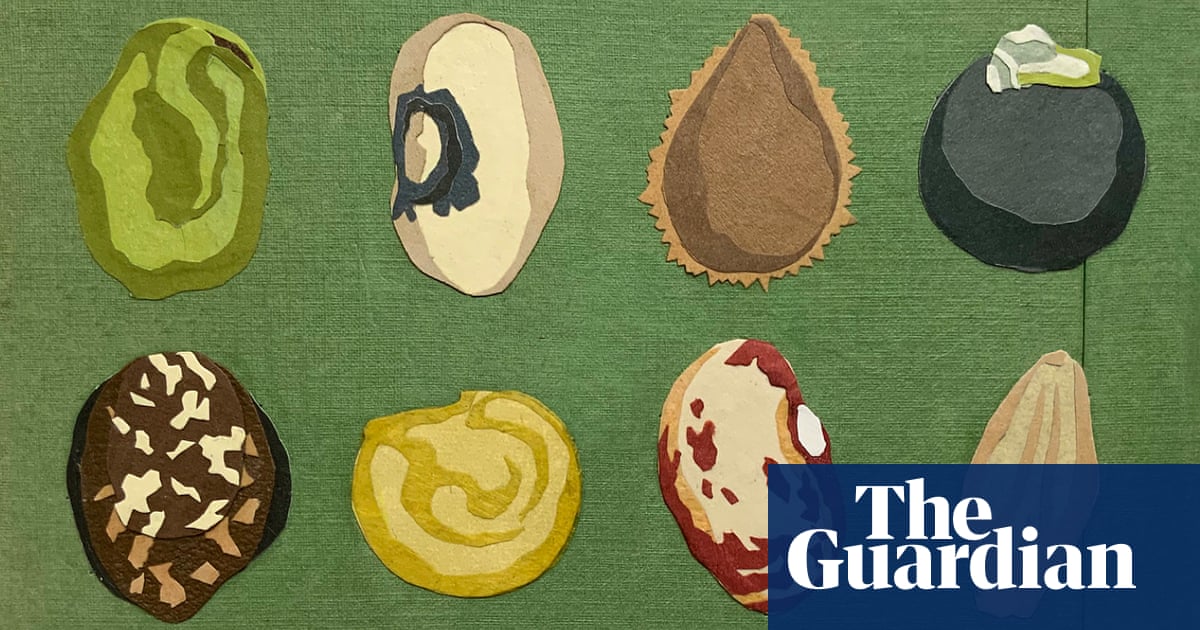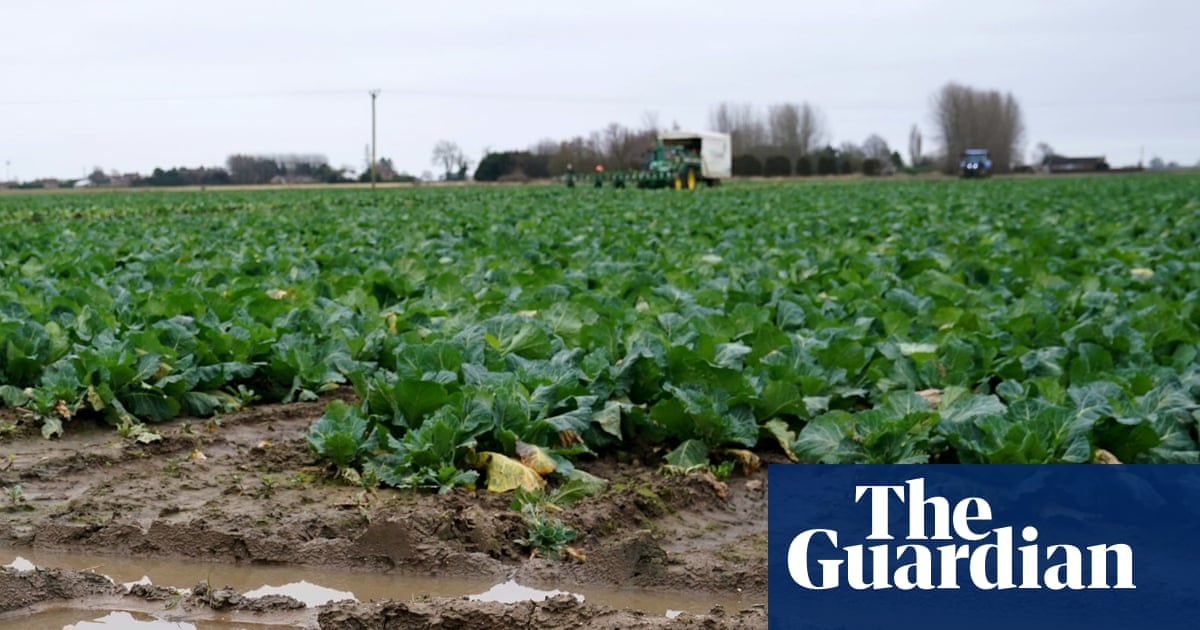‘Laying claim to nature’s work’: plant patents sow fear among small growers | Biodiversity


For nearly 40 years, Frank Morton has been breeding plants. Particularly drawn to lettuce, he began breeding specialty salad greens, once a rarity in the produce market. Using an organic farm system, 68-year-old Morton developed entirely novel lettuce varieties and eventually started the Philomath, Oregon-based, Wild Garden Seed company with his wife, Karen.
Though he loves the work, being a small-scale plant breeder doesn’t come without challenges. Over the years, Morton has watched large corporations take over the seed industry, using utility patents to claim seeds as an invention.
A utility patent protects an invention from being used, replicated or sold without permission. This has left smaller-scale breeders in limbo, often unsure of what they can and can’t use when developing new plant varieties.
Morton has experienced first-hand the effects of such patents. In 2021, he shared one of his lettuce varieties, the “Funny Cut Mix”, with a trusted customer who also breeds plants. The lettuce was a true mix: some heads red, some green, others spotted. The leaves were all different kinds of frilly. The customer planned to include “Funny Cut Mix” in their lettuce trials, which plant breeders use to evaluate how well a variety will perform in a specific environment.
A few months later, the customer informed Morton that his “Funny Cut Mix” would be excluded from further trials because it looked like a patented lettuce type called Salanova, owned by the Dutch company Rijk Zwaan. Though he didn’t use any patented material to develop “Funny Cut Mix”, Morton’s variety was excluded simply because its appearance might infringe on that patent.
Morton doesn’t blame his customer. Instead, he points to the restrictive system of utility patents and the fear it instills in small-scale seed breeders.
“Here I am, trying to compete and I can’t compete because they don’t want to compare my lettuce to a patented lettuce” out of precaution.
In 1980, the US supreme court ruled in the case Diamond v Chakrabarty that patent protection can be used for living organisms, including plants. Seeds, which have been openly saved and shared by growers for thousands of years, could now be claimed as an invention. When a company is granted a utility patent on a type of seed, it doesn’t just own the seed. It also owns its traits (color, texture, disease resistance, the way it was grown), future generations of that seed and all of the rights to research.
So, if a plant breeder like Morton develops his own variety of lettuce and the lettuce matches any of the traits of a patented variety – whether it be color, the curliness of the leaf or a trait that makes it conducive to a particular climate – the breeder is technically in violation of patent law and risks getting sued by the patent owner. There are utility patents for “Brilliant White Cauliflower,” “Pleasant Tasting Melons,” “Red Lettuce” and “Heat Tolerant Broccoli”. Some patents are so extensive in what they cover that they are nearly 50 pages long.
“They are essentially just doing obsessive-compulsive descriptions of plants and laying claims to those traits, so if anyone else has those traits, they are in violation,” Morton said.
The US patent system was designed to encourage competition and promote innovation. However, the patent system has opened the door for large corporations to patent thousands of plant varieties and traits, locking up genetic resources seed savers have relied on for generations.
Today, just four companies – Bayer, DowDupont/Corteva, ChemChina-Syngenta and BASF – control over 60% of the seed market worldwide. Bayer alone owns over 20 different varieties of lettuce, some of which the company has owned for over a decade. Each patent has an extensive list of the variety’s traits and characteristics.
The system rewards powerful firms with the resources to develop and enforce patents, explained Phil Howard, a professor in the department of community sustainability at Michigan State University. As patent law is complicated and ambiguous, many small-scale breeders don’t know if the seeds they want to work with are patented or not. He said this stifles their freedom to experiment.
“Some of these big firms will intimidate seed breeders into believing that there are broad patent claims on many seeds, when in fact there aren’t. So the current lack of transparency and the complexity really gives massive advantages to these big firms and really hinders the smaller firms.”
Adaptive Seeds is an organic seed company that grows without chemical fertilizer and does not use any form of intellectual property rights; anyone can openly save and share their seed varieties. In April 2020, the company received a letter from BASF, a German multinational chemical company and the owner of Nunhems, the fourth-largest vegetable breeding company in the world. The letter did not directly accuse Adaptive Seeds of using patented material, but did list varieties of seeds and traits Nunhems had patented. It was an ominous reminder of just how many traits and varieties BASF has control over.
Andrew Still started Adaptive Seeds in 2009 after noticing the increasing consolidation in the seed industry. When breeding, Still typically uses seeds that have been marked as open-sourced and not patented. But patents can be confusing, so there’s anxiety about accidentally using a large corporation’s patented material, Still says.
after newsletter promotion
“There’s always a general concern that one day they’re going to decide we’re selling something that they think is theirs and they’re going to sue us over that,” Still said. “We would just roll over because we don’t have any lawyers or money for stuff like that and they do.”
For breeder Kristyn Leach at Second Generation Seeds, a seed hub that sells Asian heirloom seeds, seed is much more than a commodity. It represents a history of “what someone values and how they farmed”, a relationship that is unique to every region and farmer. She explained that to her smaller company, utility patents are not so much a day-to-day concern. Instead, they jeopardize culturally significant seeds in the long term.
“A lot of crops have been patented by companies that have no accountability to the places or people where these crops are native to,” Leach said.
The more seed is patented and controlled by fewer people, the more that seed is going to lose its genetic richness, she added. At Second Generation Seeds, Leach and her colleagues are trying to do the opposite – increase genetic diversity by recognizing seeds’ connection to place and culture. The company acts as a marketing hub where small-scale farmers can sell packs of seed and receive the majority of the packet sale money in return, minus the cost of production. It’s a way for smaller-scale breeders to enter the commercial seed market, which has become difficult with how the industry has consolidated, Leach says.
With that consolidation has come the closure of public plant breeding programs. Over the last 30 years, nearly a third of the country’s public plant breeding programs have been shut down. Leach sometimes collaborates with public university breeding programs that remain and that is when she has to be most diligent about not using patented material.
In June 2023, the US Department of Agriculture and the US Patent and Trademark Office (USPTO) launched the Farmer Seed Liaison, an online tool to help growers and seed companies better navigate the seed patent system. The resource includes a search engine for existing plant patents, guidance on how to read patent applications, as well as a portal where complaints can be submitted.
“In our changing climate, farmers need access to a diversity of seed options more than ever. Unfortunately, today farmers don’t always have robust choices – a challenge that was recognized in the Biden-Harris executive order on competition,” Jenny L Moffitt, under secretary for marketing and regulatory programs, said in an email statement. “USDA’s Farmer Seed Liaison initiative seeks to expand choices for farmers and strengthen the resiliency of our seed and food supplies by promoting access to seeds for research and plant breeding, working to ensure that growers have transparency about seed purchases, and bringing the voices of farmers, plant breeders, and small businesses into the seed patent review and policy process.”
Still, of Adaptive Seeds, thinks the program is a step in the right direction, but as a small-scale breeder he is leery of federally-funded programs and the bureaucracy attached to them. He believes the real problem is anything that inhibits seed breeders from openly sharing with one another, as the whole patent system does.
To do their part in ensuring at least a portion of seed remains a public resource, both Adaptive Seeds and Wild Garden Seed participate in the Open Source Seed Initiative (OSSI). Through OSSI, breeders pledge their plant varieties will not be patented or licensed in any way that can restrict use. Through the pledge, OSSI is developing a pool of seed that is available to all farmers, scientists and researchers for unrestricted use. There are currently over 500 plant varieties under the OSSI pledge.
Morton, who is a founding member of OSSI, has pledged over 100 varieties, ensuring that what he grows can be used by others without restriction. He remains adamantly against “people laying claims on the work of nature” and will continue to do what he can to keep small-scale breeding alive.
He said, “It’s not about me. It’s about the principle of the whole thing. And whether or not breeders in the future will have the freedom to operate.”
Source link




